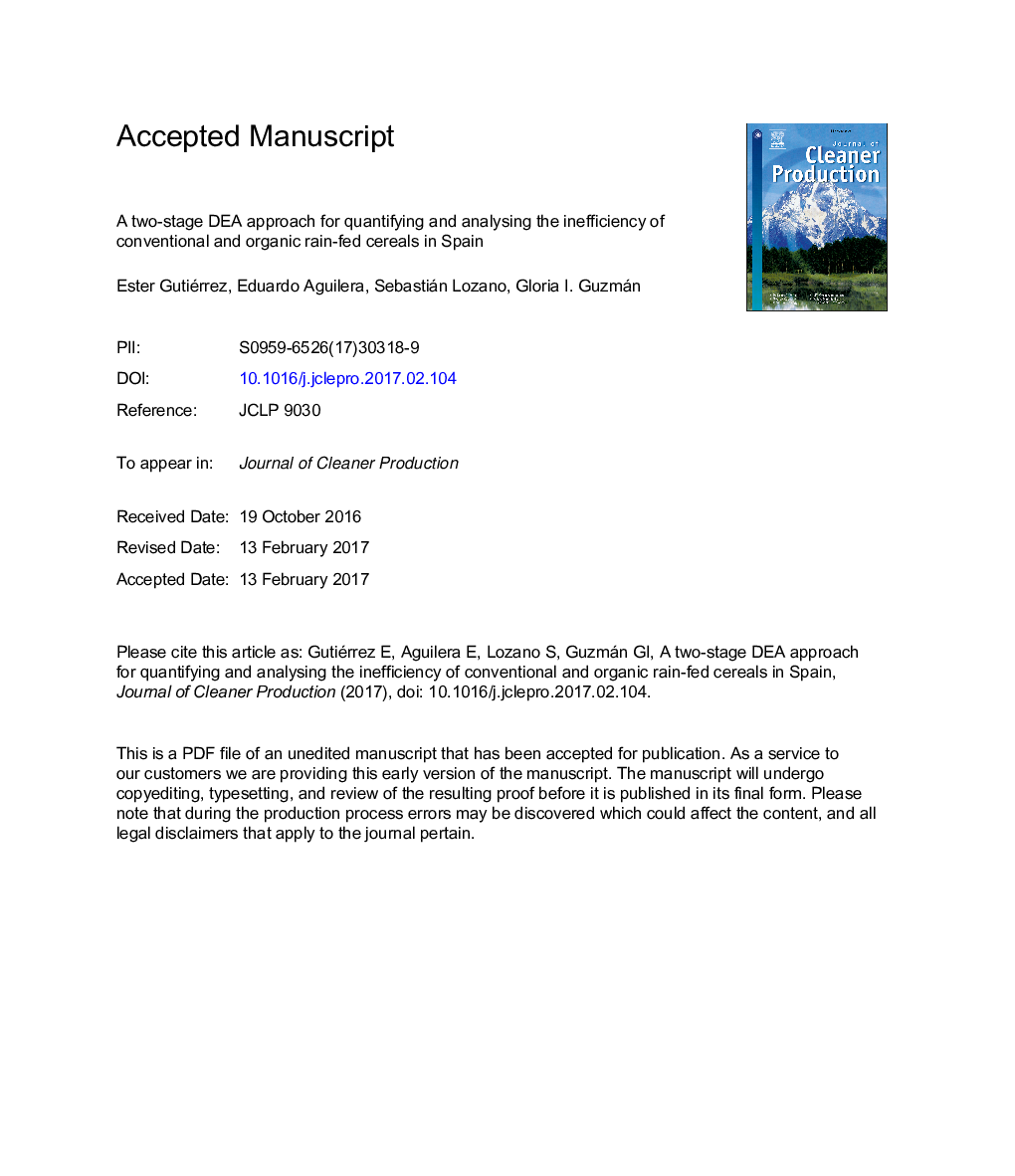| کد مقاله | کد نشریه | سال انتشار | مقاله انگلیسی | نسخه تمام متن |
|---|---|---|---|---|
| 5480737 | 1522104 | 2017 | 40 صفحه PDF | دانلود رایگان |
عنوان انگلیسی مقاله ISI
A two-stage DEA approach for quantifying and analysing the inefficiency of conventional and organic rain-fed cereals in Spain
دانلود مقاله + سفارش ترجمه
دانلود مقاله ISI انگلیسی
رایگان برای ایرانیان
کلمات کلیدی
موضوعات مرتبط
مهندسی و علوم پایه
مهندسی انرژی
انرژی های تجدید پذیر، توسعه پایدار و محیط زیست
پیش نمایش صفحه اول مقاله

چکیده انگلیسی
This paper assesses the efficiency of rain-fed cereals crops grown in Southern Spain. The proposed approach uses a two-stage Data Envelopment Analysis (DEA) plus regression approach. In the first stage a Slacks-based Inefficiency (SBI) DEA model is used to project conventional and organic cropping systems onto the efficient frontier. The results of the efficiency analysis show that conventional production is more inefficient than organic production and that the main sources of inefficiency in the case of conventional production correspond to excessive input consumption and GHG emissions. In the case of organic production, the inefficiency comes from output shortfalls. It is shown that reducing inefficiency would reduce the amount of GHG emitted per unit of fresh matter yielded. This potential gain is more pronounced in the case of conventional production but also occurs for organic production. In the second stage, the crops efficiency scores are regressed against some exogenous variables using a fractional regression model. The regression results confirm that organic production significantly decreases inefficiency and they also indicate that the larger the farm, the larger the inefficiency and that growing barley is more inefficient than wheat.
ناشر
Database: Elsevier - ScienceDirect (ساینس دایرکت)
Journal: Journal of Cleaner Production - Volume 149, 15 April 2017, Pages 335-348
Journal: Journal of Cleaner Production - Volume 149, 15 April 2017, Pages 335-348
نویسندگان
Ester Gutiérrez, Eduardo Aguilera, Sebastián Lozano, Gloria I. Guzmán,